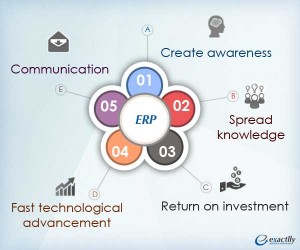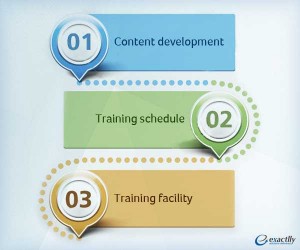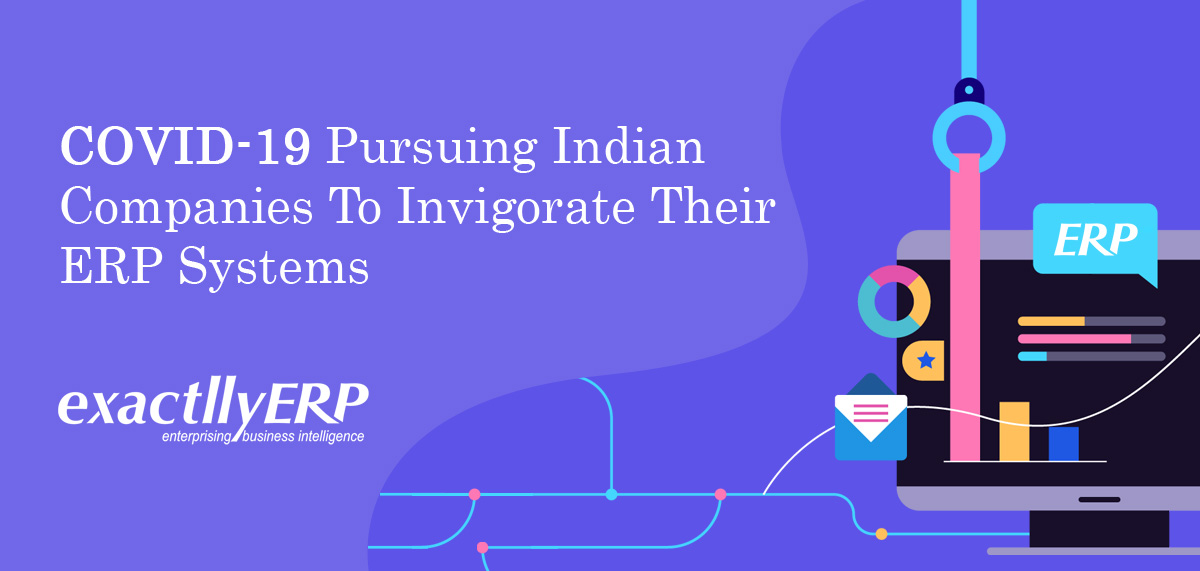Protecting Your Investment with ERP Training

ERP Training
 ERP systems are being increasingly installed by companies to increase the profit and efficiency of their business. ERP is enabled to streamline different facets of the company like inventory management, product planning, quality testing, accounting, marketing & sales, service delivery, etc.
ERP systems are being increasingly installed by companies to increase the profit and efficiency of their business. ERP is enabled to streamline different facets of the company like inventory management, product planning, quality testing, accounting, marketing & sales, service delivery, etc.
With growing demand and increasing complexities in the business environment, companies customize their ERP software by choosing a set of features, services, and modules. Despite having the most suitable ERP software, the system sometimes fails to deliver the required results. The reasons for the failure of an ERP implementation project can be a number of them. They may include:
- Poor implementation strategy
- Business unsuitable for ERP
- Unclear goal
- The lackadaisical approach during the implementation phase
- Too much customization
- Poor training
Need for training:
Even if you consider all aspects of the ERP system including an understanding of features, end goals, and optimum customization; the project still fails. The key part often missed during ERP implementation is poor employee training. Furthermore, training at an advanced level may be required for key professionals in the organization. The administrative skills mastered thereafter may include business intelligence technologies and solutions, business process analysis, corporate information systems management, process, and workflow management.
The ERP system is, ultimately, operated by the employees. And it is no good if the users who operate are not trained. Many organizations prefer to save cost involved in ERP training by completely avoiding it or by training only a handful of employees. Certain other small businesses often avoid giving proper training to their employees thinking that they all would learn with time. Others bypass it as they fear losing training investment if an employee leaves the company.
On the contrary, with no professional training, employees suffer from a lack of knowledge and are unable to exploit the system. The whole exercise of installing it goes in vain. Consequently, small business owners lose their investment; close down the project in the middle, and never touch ERP again.
Though cloud-based ERP systems have significantly lowered the cost of initial investment as compared to on-premise ERP systems, a considerable amount of time, human resources, and money is lost every month due to poor training. Whatever may be the reason for not training the employees, they all point towards disruption in business. The proper way of going forward is to shift focus from worrying about features and the initial cost of investment towards training assessment. This brings us to discuss why training is crucial to saving your investment in ERP projects.
Importance of ERP training:
- Create awareness
Training is not limited to knowing individual roles in the system but a comprehensive awareness of the system functionalities. Every employee must know the source of data, utilization of data, and how the system can be exploited with the data available. Employees will become extra cautious in data collection if they know the value it generates. The same data is going to give them valuable insights to improve their efficiency. With widespread knowledge of the system, employees can innovate and contribute towards process improvement. - Spread knowledge
Whether it is imparting knowledge to the employees or knowledge imparted to a few employees in the company, both the cases are counter-productive for the company. With limited knowledge, employees can’t function at their highest level and most of the time the information is wrongly interpreted. On the other hand, ERP training only given to a few employees is even more dangerous. If the trained employees leave the company or threaten to leave the company until their monetary desires are satisfied, as a small business owner, you are going to be at a loss from both corners. - Return on investment

The investment in ERP projects is done purposely to retrieve long-term returns. The automation in ERP is of no use if the users are not well-trained. They will not be able to gain insights and analyze as required. Explore the potential of the ERP system with the help of a professional trainer. Look for a trainer who understands your industry and specifically your business needs. Many ERP vendors also offer training options, but it is important to thoroughly assess your company’s needs before you accept the offerings of the vendor. - Fast technological advancement
Traditional ERP systems have evolved tremendously with time. The cloud technology today has made it possible to access the software through smartphones, tablets, and other gadgets. Employees need a thorough user guide to effectively utilize this potentially evolving technological space. It is not only important for utility purposes but also for the security of crucial business information which is threatened due to remote access.
The training needs can differ from business to business, but frequently ERP systems are updated and a host of new functions are added. Periodic training is a must to keep up with the evolving software. Apart from that, there are accountability and morality issues with the use of cloud-hosted ERP systems that need to be dealt subtly. - Communication
Operating an ERP system is a collective task in an organization. Break all barriers of communication irrespective of the hierarchy to offer full support to the ERP system. No information should be misleading or concealed from any employee pertaining to the perfect functioning of the software.
Keep your employees posted about the latest development in the system. Clarify the end goals of ERP to employees to seek their full support during implementation. Training is obviously necessary here to help employees figure out necessary information from the redundant one.
Implementing training:
As we know now that training cannot be avoided by any means, the management must ensure that the implementation of training is closely planned and monitored.
Following are the basics of training implementation:
- Content development
Sit with the trainer and carefully chart out the content of the training. The content need varies for different organizational roles like administrator, IT department, senior management, etc. - Training schedule

Once the content development is done, work out the training schedule. The training schedule involves the number of sessions required for each employee, the number of batches to be formed, batch size, the time allotted per session, and so on. - Training facility
Whether the training is being provided in-house or at an external facility, the cost and convenience factor for each need to be worked out to decide upon a feasible way out.
Besides that, the management must make sure that every employee attends training sessions and they are skillfully taught information interpretation. If there are multiple business units of an organization, then a collective training schedule can be worked out at a central location.
Final thoughts:
ERP system and its users must work in tandem to yield the desired results. The training must focus upon the objectives of the organization for which the ERP is actually a set-up. With proper training, you not only secure your investment but also make sure that the project implementation is done within the stipulated time. Feel Free to Contact Us and get a Free Demo.






